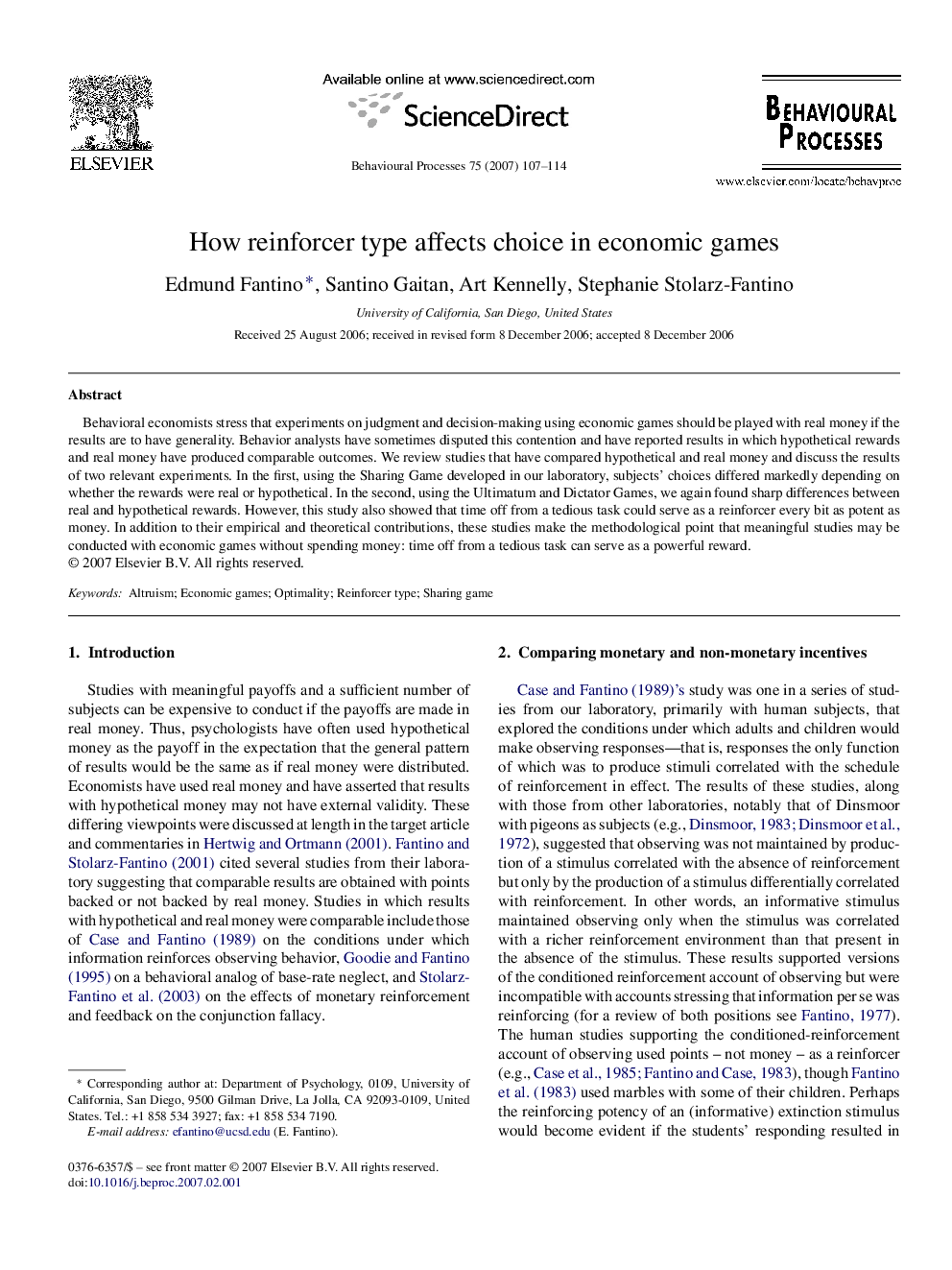| Article ID | Journal | Published Year | Pages | File Type |
|---|---|---|---|---|
| 2428015 | Behavioural Processes | 2007 | 8 Pages |
Behavioral economists stress that experiments on judgment and decision-making using economic games should be played with real money if the results are to have generality. Behavior analysts have sometimes disputed this contention and have reported results in which hypothetical rewards and real money have produced comparable outcomes. We review studies that have compared hypothetical and real money and discuss the results of two relevant experiments. In the first, using the Sharing Game developed in our laboratory, subjects’ choices differed markedly depending on whether the rewards were real or hypothetical. In the second, using the Ultimatum and Dictator Games, we again found sharp differences between real and hypothetical rewards. However, this study also showed that time off from a tedious task could serve as a reinforcer every bit as potent as money. In addition to their empirical and theoretical contributions, these studies make the methodological point that meaningful studies may be conducted with economic games without spending money: time off from a tedious task can serve as a powerful reward.
